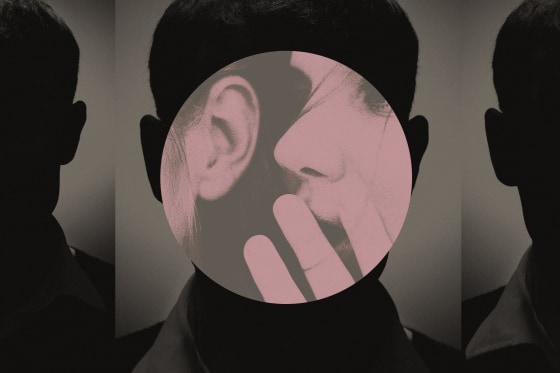Calls to ban Tea Dating Advice, a women’s-only online dating safety app where users can share stories and information about men they dated, have exploded in recent weeks, driven by fears that reputations, especially of young men, could be damaged by anonymous and potentially false allegations of sexual misconduct. But what does it say about our cultural priorities when the potential for reputational harm against men sparks more outrage than the prevalence of sexual violence against women that online dating has facilitated for years?
Dating apps have long been associated with very real incidents of rape and other forms of sexual violence.
The Tea app was designed to help women avoid harmful dating partners, and it recently became the most downloaded free app on Apple’s App Store. With that increase in popularity came a public outcry, especially from among men — who cannot access the app. They argue that Tea encourages doxxing (the unwanted release of personal information) and enables the spread of intentionally false and defamatory stories that can ruin men’s reputations and dating prospects. Criticism of Tea has led to security breaches of the app and doxxing of the women who use it.
The potential for Tea to be misused for reputational damage has led to calls on social media for the app to be shut down entirely. Yet by this logic dating apps themselves shouldn’t exist.
Unwarranted reputational damage associated with the Tea app is largely speculative at this point, but dating apps have long been associated with very real incidents of rape and other forms of sexual violence. Studies across the United States and Australia consistently show that approximately 10% of reported incidents of rape are attributable to dating apps. This is likely an underestimate given the propensity for sexual violence to go unreported and the potential for online daters to cause sexual harm unintentionally due to misunderstandings regarding consent.
The majority of victims of sexual violence are women. Despite this knowledge, we seldom hear calls for dating apps to be shut down because of the role they play in sexual harm against women. We’ve certainly not heard any such calls expressed with the fervor that Tea’s opponents have expressed.
We seldom hear calls for dating apps to be shut down because of the role they play in sexual harm against women.
Not only are dating apps still as popular as ever, safety-oriented improvements in their design have been superficial at best. Almost every safety feature built into dating apps is reactive — such as user blocking and reporting features— meaning they require women to first be harmed before the feature can be used. It’s telling that Tea is a standalone app and not a feature built into any existing dating platform where users actually discover and chat with dating partners.
Tea is the first real advancement in online dating safety since…ever. It is certainly the most popular tool for women to avoid, rather than react to, online dating harm.
The Tea app should be controversial, but for very different reasons. Why is Tea the only dating safety technology for women to get mass attention in recent years?
What Tea really symbolizes is that women’s safety in online dating has been severely overlooked — to the point that some women even blame themselves for sexual harassment and apologize to their perpetrator for inconveniencing them in their pursuit of sexual gratification.
Because Tea addresses an underserved safety need doesn’t mean it should be exempt from criticism or that false accusations against men should be an acceptable side effect. Instead of calls to outright ban the app, though, we should be hearing more people asking for — and demanding — better dating safety technologies.
How could an app like Tea continue to provide safety benefits to women while also reducing the potential for false accusations against men? Research in my own lab consistently finds that men actually desire more dating advice and don’t always consciously realize how they could misinterpret sexual interest or engage in a behavior that may actually be unwanted.
Research finds that men don’t always consciously realize how they could misinterpret sexual interest or engage in behavior that may be unwanted.
Could the men being discussed on Tea want, and benefit from, feedback about their dating behavior? How could they be informed of reviews about them in ways that do not put women at risk of retaliation? Such questions are only examples of a much larger conversation that should be happening about how to make online dating safer.
Ultimately, the outcry against Tea is not just about one app. It reflects a larger debate over how we prioritize dating harms and the safety of people most likely to be hurt. What this debate reveals about us is troubling. Calls for Tea’s downfall proclaim that lies that cause reputational harm against men are unacceptable (and rightly so). But sexual harm against women? The silence suggests that we consider that an allowable consequence of dating apps. Because if we took sexual violence against women as seriously as we take the potential hit on men’s reputation, then we’d hear calls to ban the multitude of dating apps filling our phones.
